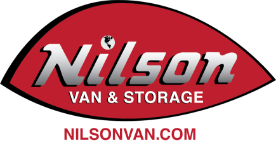
Moving to a new home is exciting, but without adequate preparation, it can also bring unexpected financial pressures. Hidden moving costs are surprising and can quickly add up, turning what should be a positive experience into a stressful financial burden. By planning your moving budget with forethought, understanding the potential hidden costs, and employing strategies to minimize expenses, you can enjoy a smoother transition to your new home. Here’s a comprehensive guide to avoiding unexpected moving expenses and ensuring a financially sound move.
Unveiling Hidden Moving Costs
The first step in avoiding surprises is identifying potential hidden costs. Beyond the most common expenses like hiring a moving company or renting a moving truck, there are numerous overlooked moving costs you should consider. These can include packing materials, temporary storage, utility connection fees, and the cost of replacing items that don’t fit or aren’t suitable in your new home. If you’re moving to a different city or state, travel costs, lodging, and meals during the move can also add up. It’s essential to factor these potential expenses into your budget to get a realistic view of your moving costs.
Planning Your Moving Budget
Detailed planning is crucial to avoid unexpected moving expenses. Start by creating a comprehensive checklist of all expected costs. Request quotes from several moving companies to compare prices and services, and ensure to ask about any additional fees that could arise, such as for heavy items, long distances, or stair fees. It’s also wise to set aside a contingency fund—usually 10-20% of your estimated moving budget—to cover unexpected costs without derailing your finances.
Tips to Cut Down Moving Costs
Fortunately, there are numerous ways to reduce the overall cost of your move. First, declutter your home and sell or donate items you no longer need to reduce the weight and volume of your move, potentially lowering moving company costs. Look for free moving boxes from local stores or online marketplaces instead of purchasing new ones. If possible, schedule your move during the off-peak season (typically mid-September to April) when moving rates are lower. Additionally, if you’re handy, consider doing some of the packing and unpacking yourself to save on labor costs.
The Role of a Reliable Moving Company
While it might be tempting to choose the cheapest moving option, hiring a reliable moving company can save you money in the long run. A reputable mover will provide a clear and comprehensive quote, help you avoid hidden fees, and ensure your belongings are safe. They can also offer valuable advice and services to streamline your move and reduce costs. When selecting a moving company, check reviews, ask for references, and confirm they have the proper licensing and insurance to avoid potential scams and additional expenses.
Preparing for the Move Without Financial Surprises
The final step in your moving journey is to prepare thoroughly to avoid last-minute expenses. Confirm all details with your moving company a few weeks before the move, and ensure utilities and services are set up in your new home to avoid reconnection charges. Keep important documents and valuables with you during the move to avoid replacement costs.
By uncovering hidden moving costs, planning your moving budget, implementing cost-cutting strategies, and selecting a reliable moving company, you can embark on your residential move without fear of financial surprises. Reach out to the reliable and experienced team of professionals at Nilson Van and Storage for guidance and support for a smooth move while sticking to your budget.



